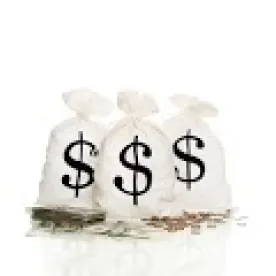On August 30, 2016, the U.S. Securities and Exchange Commission (“SEC”) announced that it surpassed the $100 million mark in monetary awards for whistleblowers. Through the enactment of the Sarbanes-Oxley Act of 2002 and the Dodd-Frank Wall Street Reform and Consumer Protection Act of 2010 (“Dodd-Frank Act”), Congress established the whistleblower program to incentivize whistleblowers who possess “specific, credible and timely” information about federal securities laws violations to report information to the SEC. At the Sixteenth Annual Taxpayers Against Fraud Conference, held on September 14, 2016, SEC Enforcement Director Andrew Ceresney addressed this recent milestone and how the SEC intends to expand its mandate to prevent and prosecute securities violations through its whistleblower program.
The SEC’s Recent Awards To Whistleblowers
How does the SEC carry out its mandate by incentivizing individuals to come forward with information? Section 922 of the Dodd-Frank Act, codified 15 U.S.C. § 78u-6, encourages individuals to report information regarding securities laws violations by requiring the SEC to pay substantial monetary awards to individuals who provide information that ultimately leads to a successful enforcement action yielding monetary sanctions of over $1 million.
Since the inception of the SEC’s whistleblower program, the SEC has received more than 14,000 tips from whistleblowers in the United States and in 95 foreign countries, and has awarded an estimated $111 million to 34 whistleblowers. In 2016 alone, the SEC awarded over $50,500,000 to whistleblowers. Just recently, on September 20, 2016, the SEC announced that it awarded $4 million to a whistleblower who provided original information that alerted the SEC to an alleged fraud. In August 2016, the SEC awarded $22.4 million to a company insider, who disclosed alleged accounting fraud at the insider’s company. In June 2016, the SEC awarded more than $17 million to a former employee, whose detailed tip of key original information advanced the SEC’s investigation into the whistleblower’s former employer. In May 2016, the SEC awarded a former employee over $5 million for detailed tips that helped the SEC uncover securities violations. In May 2016, the SEC again awarded $3.5 million to a company employee, who provided additional evidence of wrongdoing that strengthened an ongoing investigation of the SEC. In March 2016, the SEC awarded each of three whistleblowers for coming forward with information, for a total award of $2 million. One whistleblower received $1.8 million of the $2 million award for providing key original information that prompted the SEC to open its investigation, and for continuing to provide information throughout the investigation. In 2015, the SEC awarded an estimated $5 million to whistleblowers. In 2014, the SEC awarded more than $30 million, the largest award in the history of the whistleblower program, to a foreign whistleblower who provided key original information regarding an ongoing fraud that led to a successful SEC enforcement action.
In addition to the use of monetary awards, the SEC encourages whistleblowers to come forward by affording a private cause of action against an employer who takes an unlawful retaliatory action against the whistleblower. The SEC has also taken measures to impede the use of confidentiality agreements that discourage individuals from reporting securities laws violations. (Additional information on these efforts can be found here and here.) The SEC recently announced that it has brought four actions against companies for including such language in confidentiality and severance agreements.
Who Qualifies As A Whistleblower
In his September 14, 2016 speech, SEC Enforcement Director Ceresney suggested that anyone, either an insider or outsider of a company, can potentially be a whistleblower. Section 922 of the Dodd-Frank Act defines a “whistleblower” as any individual, alone or jointly with others, who provides information relating to a violation of the securities laws to the SEC, in the manner established by rule or regulation, or by the SEC. See 15 U.S.C. § 78u-6(a)(6). Enforcement Director Ceresney acknowledged that company insiders, such as current and former employees, and company outsiders, such as independent industry experts, have proven to be equally valuable whistleblowers. For example, in January 2016, the SEC awarded more than $700,000 to a company outsider who provided independent data analysis that led to a successful SEC enforcement action. Enforcement Director Ceresney encouraged future whistleblowers to come forward without delay. Mr. Ceresney also encouraged whistleblower counsel to take an active role in the reporting process. Quicker reporting and a more active “whistleblower” bar likely mean more activity to come in this area.




 />i
/>i

